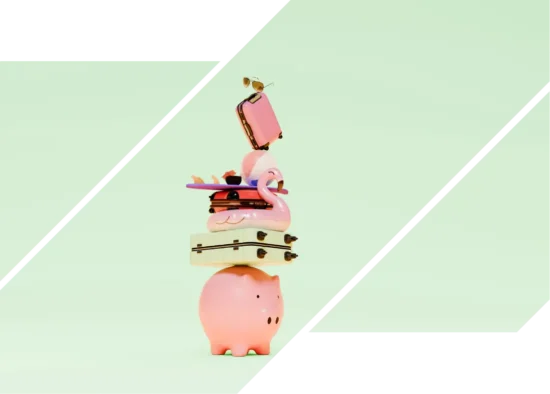Credit sounds like a mysterious, looming entity that can affect our lives in big ways. We rely on credit to buy a house, handle emergencies, and for long-term financial security. It can be a great financial tool! Unfortunately, there is a lot of misinformation out there about your credit score and what you can do to improve it. The biggest thing you need to know is that the subject of credit is not black and white. A certain credit score will not automatically qualify you for whatever kind of loan you need, and it takes careful thought and maintenance to stay in a situation where you have positive credit. You never really stop working on your credit, which can be great because you are never too young or too old to build your credit!
Payment History (35%)
The biggest factor in your credit score is payment history. This weighs in at a hefty thirty-five percent of your total score. To keep this positive, it is extremely important to make payments on time; any payments that are past due more than thirty days will report on your credit. Your payment history, the number of accounts that are paid as agreed, as well as the number of past due items and the length of time they have been past due will all appear on your credit report. The best way to increase your score in this area is simply to pay on time! More weight is placed on recent payment activity so even if your payment history hasn’t been great in the past, you can make a significant impression by setting a new precedent going forward.
Amounts Owed (30%)
The total amount owed makes up a large part of your credit score as well. This includes not only the number of accounts that hold balances, but the proportion of credit lines used, as well as the balance of any installment loans. To increase your score, work on paying down revolving balances and avoid opening new accounts until you have paid down a significant portion. For credit cards, a balance of fifty percent or less of the credit limit is ideal. Open new accounts or lines of credit as needed rather than taking advantage of specialty offers when they arise.
Length of Credit History (15%)
The length of credit history accounts for a smaller portion of your credit score, but is still significant. This is simply the amount of time since accounts have been opened and the time since there has been any account activity. You may have heard the advice to close old credit cards and lines of credit that you don’t use anymore, but if there are no annual fees, it’s better to leave them open! Having nothing owed but all that credit available to you is good for your credit score. Closing it could immediately dock your credit by several points. If you don’t want the temptation, you can simply cut up or shred the cards for these accounts so you aren’t tempted to use them!
Types of Credit Used (10%)
Though not common knowledge, types and diversity of credit used also factor into your credit score. For instance, if your credit report is made up of a variety of credit cards, you should think about adding an installment loan to vary credit type a little. This tells a lender that you are reliable in paying back an assortment of different kinds of debt. Likewise, if you have only had installment loans in the past, getting a credit card can increase your score over time as your demonstrate your ability to be responsible with a revolving line of credit.
New Credit (10%)
If you have a number of recently opened accounts, or are shopping around for the best rate and having your credit pulled again and again, it can negatively affect your credit. Inquiring about your credit too often can also affect your score as well, and you generally want to avoid pulling credit more often than every six months to one year.
It’s great to know that credit isn’t a mysterious, immovable number, but rather like a living organism that responds to care and attention. The first step to improving your credit score is to know your credit score. Luckily, ICCU has you covered with our free My Credit feature! You can check your credit score each time you log into eBranch without impacting your score! You can also view your full credit report, monitor for unusual activity, get alerts for changes to your credit, and more.
As always, our loan officers at ICCU are happy to help you create a plan to build your credit and answer any questions you have. We are proud to say that with credit builder products, competitive rates, and a rewards program, we have something suitable to fit every need.



